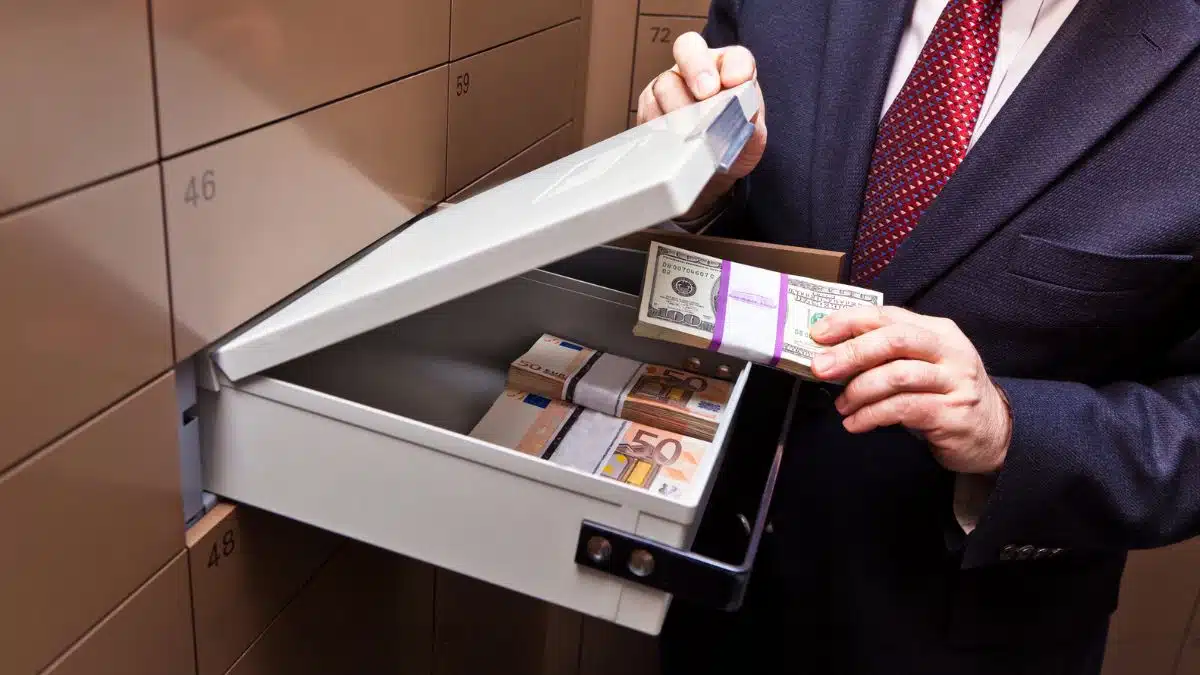Creating a will is a fundamental aspect of estate planning. However, many people forget to include essential things that can significantly impact the distribution of their estate and their loved ones’ well-being.
Here is a list of frequently overlooked items that must be included in your will.
1. Digital Assets

Include your digital assets, such as social media, online banking details, and emails, in your will. Appoint someone to manage these digital assets and provide clear handling instructions.
Take proactive measures to safeguard your sentimental digital content and online legacy. This will also prevent legal issues for your heirs and protect against identity theft.
2. Pet Care

Make provisions for your pets in your will, as they are often considered part of the family. Talk with your loved ones, find someone who will care for your pets, and set aside funds for their maintenance.
Take these steps to guarantee your pets live in loving homes that reflect your care. This will also ensure your pets’ well-being is not left to chance or contentious decisions among relatives.
3. Personal Items with Sentimental Value

Don’t let cherished treasures spark family fights. Their sentimental value far outweighs their price tag.
Include instructions for passing down sentimental items to honor your relationships and the emotional bonds these items represent. Make sure that your personal belongings stay within the family to avoid hurt feelings.
4. Debts Owed to You

If anyone owes you money or things of value, state these personal loans in your will. It helps clear up debt recovery for the estate and guarantees fair distribution among your heirs.
Also, acknowledge the debts you owe to provide a complete financial picture of the estate and streamline probate proceedings. Such transparency ensures your estate receives all its rightful assets and maintains its financial integrity.
5. Intellectual Property

Intellectual property rights can generate income long after you’re gone. Include these assets in your will to specify who should benefit from them.
Doing so secures a lasting income stream for your heirs and supports the continuation of your creative legacy. Clarify ownership of these assets to protect them from being undervalued or mismanaged after your passing.
6. Club Memberships and Season Tickets

Don’t forget to mention club memberships and season tickets, especially for premium or hard-to-get services. Specify transfer rules as to who you’d like to get these privileges.
Including these memberships in your will lets your loved ones enjoy the perks. It also ensures these special benefits don’t go back to the issuers.
7. Instructions for Business Ownership

Business owners must give clear directions for the continuity or sale of their business. It helps to safeguard the business’s future and provide for beneficiaries.
Decisive instructions in your plan prevent disputes among partners or family members, allowing the business to thrive or be sold on your terms. Your foresight safeguards the livelihoods of your employees and the financial future of your beneficiaries.
8. Sentimental Real Estate

Thinking about that lake house you love? Don’t leave your family guessing about its future.
By clearly stating what will happen to your real estate, like the lake house you visit in the summer with your family, you avoid any conflict down the line. Clear directives keep sentimental value for future generations and maintain family unity.
9. Frequent Flyer Miles

Make provisions for frequent flyer miles if they’re transferable upon passing. Assign them to beneficiaries for their travel and enjoyment.
Doing so lets heirs create new memories and honors your travel wishes. Leave precise instructions to ensure loved ones can take advantage of these rewards.
10. Safe Deposit Box Contents

People often remember the safe deposit box but not its contents. To ensure your valuables are passed on properly, detail what’s inside and who should inherit it. Then, inform your bank about these will instructions.
Doing so prevents the loss or destruction of valuables, making sure they reach the intended beneficiaries. This attention to detail prevents your assets from being overlooked or mishandled in the distribution process.
11. Loans and Liabilities

Make sure to list any outstanding liabilities. This list clarifies the estate’s financial position and responsibilities for your executors and beneficiaries.
A clear list of liabilities prevents surprises during the probate process. It makes estate settlement smoother and less stressful for your loved ones.
12. Unborn or Young Children

Include provisions for any unborn or young children you have. Their long-term care and guardianship must be secure even if you’re no longer there.
Doing so protects your children’s financial and emotional well-being, ensuring a stable future for them even in your absence. It shows foresight and takes care of your children’s futures.
13. Non-Financial Documents

Non-financial documents like marriage certificates, personal letters, and photos are important to your family. Decide who should receive these, as receiving such items can mean a lot to your family.
Sharing these non-financial documents connects future generations to their past and preserves valuable life lessons. When a close loved one passed away when I was young, they made sure that I got several personal letters throughout my life. These letters still mean the world to me.
14. Heirlooms

Heirlooms can spark disputes among family members. Designate their future owners in your will to avoid conflicts and ensure your intentions are respected.
Clarity minimizes discord, safeguarding the heirlooms’ sentimental value and legacy. By doing so, you honor the items’ history and the relationships of your loved ones.
15. Trusts for Children or Grandchildren

Set up trusts to effectively manage minors’ inheritances. Without this, they might receive assets outright at a too-young age.
Trusts protect the assets from misuse and provide for minors’ needs in a structured manner, aligning with your long-term wishes. It also instills a sense of responsibility and preparedness when they eventually access their inheritance.
16. Cryptocurrency Holdings

Don’t let your cryptocurrency assets go unnoticed. Include instructions to access and distribute your cryptocurrency to avoid loss due to its anonymity.
Remember to protect your digital wealth from getting lost in the blockchain. By addressing the challenges of inheriting digital assets in advance, you make sure they stay accessible and are not forgotten.
17. Final Arrangements

Include your funeral and burial preferences to guide your family. These instructions ease the decision-making burden in an extremely stressful situation.
Specifying your wishes guarantees a respectful remembrance true to your values. Thoughtfulness in planning commemorates your life as you desire.
18. Gifts to Charities

You should state any donations to charities in your will to honor your philanthropic goals. They may even provide tax benefits and make sure you realize your charitable vision.
This can be a final testament to your values and legacy, potentially inspiring others to follow in your footsteps. Additionally, it leaves a positive imprint on the world, extending your influence beyond your lifetime.
19. Guardian for Minor Children

Select a guardian for any minor children to maintain control over their care. This will guarantee that your children are looked after by someone you trust.
Such a decision preserves your parental desires beyond your lifetime. It prioritizes your children’s security and happiness, showing your commitment to their well-being.
20. Instructions for Personal Writings

Offer guidance on distributing your journals, letters, and other available things you have written down. Provide instructions on who should receive these items to preserve your legacy.
Your personal writing will bridge time, allowing your thoughts and experiences to live on intentionally.
Signs That You May Be Ready for Early Retirement

Retiring early isn’t just a dream for the few. It’s a tangible goal for those who plan and prepare with dedication.
If the thought of hanging up your work boots before the traditional retirement age excites you, here are signs that you might be on the path to early retirement.
Stop Wasting Money on These Things No One Really Needs

Between paying bills, buying groceries, and saving for retirement, we could also use a little more money each month. One of the simplest ways to free up a little room in our budgets is to stop wasting money on things we don’t actually need.
Take a close look at what you buy and what you can do without. By carefully examining your purchases, you can find ways to reduce your monthly expenses and put more money towards the things that truly matter. Here are 22 things my family and I stopped buying, and so should you.
Marjolein Dilven is a journalist and founder of Radical FIRE, a personal finance platform, and Spark Nomad, a travel platform. She has a finance and economics background with a master’s in Finance, and has quit her job to travel the world. Marjolein Dilven writes for publications like MSN, the Associated Press Wire, CNBC, Town News syndicate, and more.
